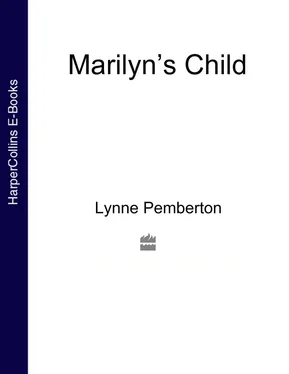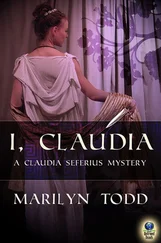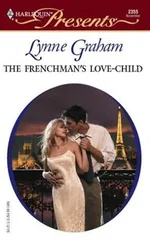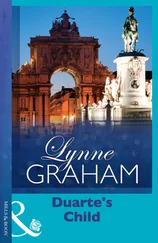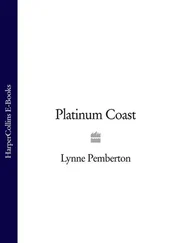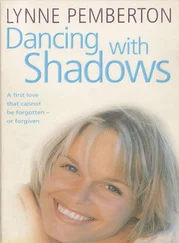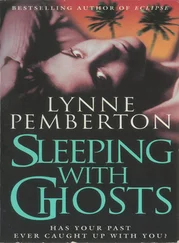Last year it snowed on Christmas Eve and the trudge to church, hand in hand with Bridget under a sky as blue as my eyes, had been like walking through another village, a magical place transformed to silver brilliance. Bridget and I, at the back of the snake of girls, as far from Mothers Paul and Thomas as possible, had played a game of placing our feet in the footprints made by the girls in front. On the surrounding hills a huddle of sheep formed a grey blob against the gleaming white. The unmarked snow lay in thick wedges on the rooftops of the village; the church spire was sullen in contrast. The trees surrounding the church were woven with white, and the snow cleared from the churchyard drifted into our faces and pricked our eyes.
At the Good Sisters of Mercy Orphanage we have a tree dressed by the parish Christmas fund, and a make-believe present. I say make-believe because it’s an only-for-show present. On Christmas morning the parish priest visits to inspect the orphanage. The gifts under the tree are all wrapped in shiny Christmas paper. After he’s left they are all taken away. None of the girls knows where they go and no one dares to ask. One year we got to open the presents on the insistence of Father O’Neill. I got a pair of trainer shoes that were too tight: they nipped my toes. Foolishly I complained, and got a clip round the head for my trouble. The same year we got to eat the for-show-only meal. It was pork, rich and fatty, and it made me feel a bit sick. You could have played football with the pudding, and the custard was runny, like Maureen O’Leary’s snot. All in all, I was rather pleased when the following year there was no inspection and we had the usual porridge and a rasher with fried bread.
I’d like to miss it all and jump straight into spring. Why do we have to have winter? Other countries don’t. Some people wake up to sunshine every day. I suppose that would get a bit boring, but every other day would be nice. No more huddling under blankets no thicker than toilet tissue, bony legs close to my chest, hands as stiff as a corpse and as blue as Mother Superior’s lips (she’s got a bad heart). What joy never again to hear the nocturnal chorus of chattering teeth, hacking coughs, rasping wheezes and the constant sniffing from noses that become, from December to March, like running taps.
Thinking of winter causes the face of Theresa Doyle to surface. Countless times in the past couple of months I’d longed to throttle her or wished her phlegm would choke her. The sound of her coughing had made me feel physically sick. In that dark middle-of-the-night time when minutes turn to hours I would have given anything to stop the deathly rattle emanating from her infected tubes. After Theresa died of whooping cough, I’d confessed my sinful thoughts to Father O’Neill, who had given me double the usual ten Hail Marys and Our Fathers to say every day for a week. I’d been desperate to tell the priest that being in a state of grace and chanting Hail Marys in my head every day would make no bloody difference to poor old Theresa or, for that matter, to me wishing her dead. Well, not dead but quiet so I could get some sleep.
I’d also wanted to ask him why God let bad people live and good people die. Like Theresa, a few months off her sixteenth birthday, or the kind-hearted Colleen Corrigan who’d worked in the bread shop. Why was Colleen, a good mam, taken by cancer at thirty-two, leaving a husband and four lovely kids? These sorts of questions are forever nagging at me, yet they stay where they are in my head, unuttered and unanswered. My confusion has nothing to do with Theresa’s death. No, my doubts had started much younger, as far back as I can remember.
In my mind I challenge the priest: So tell me, Father, why is it the pair of them, Holy Father and merciful son, let so many terrible things happen? I visualize the face of Father O’Neill looming above me; inwardly I quake at his imagined reaction. He scares me, this big man of God – not as much as Mother Thomas, but close. His hair is the exact colour of ripe tangerines. Even when he speaks normally, one to one, his voice rises at the end of every sentence like when he’s in the pulpit. But it’s his eyes that are really terrifying: deep set with coal-black pupils, the kind Mother Peter says can see right into your soul. I know I’m not the only one afraid of the bogeyman priest; even Mother Thomas, who I thought was unshakeable, quakes in his presence.
So, Father – I continue my imaginary conversation with the priest – why is it that this absentee father and wayward son have caused more than enough trouble, for me at least, yet I’m expected to love, cherish, adore, and obey them? To believe that if I worship the pair of them all the days of my life everything will be OK? You see, Father, it’s not that easy, at least not here in Friday Wells, not where I live in the Good Sisters of Mercy Orphanage. For a start they aren’t all good, the sisters that is, and there’s not a lot of mercy. I’ve never had a natural appetite for the rich food of the Lord, Father, I suppose it’s because I was force fed. Do you know, Father, Jesus was the first word I ever heard and learnt?
I have these imaginary conversations often, and not only with the parish priest. I have some really heated arguments with the nuns, particularly Mother Thomas. How I wish I didn’t have the sick feeling in my belly when she comes near me, and could muster the courage to tell her out loud what I really think. The mere thought of her reaction makes me shudder.
Hugging myself tight I feel my nose twitch and a moment later let out a loud sneeze. The young curate, level now with the pew where I’m kneeling, looks surprised, and his surprise turns to shock as I leap to my feet and, like a rabbit springing from a magician’s hat, jump into the aisle and block his way. I can see Father Steele is startled, but to his credit he recovers quickly and appraises me with lazy interest.
He’s taller than I’d first thought and broader, big-boned with a high forehead and a deep dimple in his chin. I’m beaming – I can feel it stretching my face to aching point. After a couple of minutes it begins to hurt and I’m forced to relax my mouth. To be sure, this film-star curate would make even the likes of Lady Susan Anderton lost for words. And, according to Bridget, since Susan had left Friday Wells for London she’d been going out with pop stars.
Mother Thomas had said the new curate had far too much charisma for a priest. I’d looked up charisma in the dictionary, and, after being in Father Steele’s presence for a few minutes, I was inclined to agree with her. With characteristic boldness I say, ‘Do you think you’ve got charisma, Father?’
I watch the slight rise of his eyebrows. ‘Do you know the meaning of the word, child?’
‘I do that, Father.’ I quote:’ “Ability to inspire followers with devotion, divinely conferred talent or power.’”
In a bid to hide his surprise, the curate digresses. ‘Did anyone ever tell you that it’s wrong to be talking this way about your elders?’
I nod vigorously, my head bobbing up and down. ‘All the time. Mother Paul is forever telling me that my chatter will get me into no end of trouble.’ Placing my hands on my hips, I wag my finger, imitating the nun’s voice: ‘“You’ll wear that tongue of yours out.” To be sure, it’s got me fair worn out. I wish the cat would bite it clean off.’
My eyes are smiling, and so is his mouth – I suspect against his better judgement, but I don’t care. I’m pleased as Punch to have made him smile, it makes me feel warm all over. ‘Kate O’Sullivan, at your service, Father.’
‘Kate is a grand name, my mother’s name.’ He repeats: ‘A grand name.’
‘It was Mother Peter who called me Kate O’Sullivan, the first name to come into her head the night I was taken in by the Good Sisters of Mercy Orphanage. I’ve no mam and dad, see. Well, none that anyone knew of at the time – just a name, that’s all.’ I lower my eyes. ‘My name wasn’t chosen out of love or thought, or in memory of some dead ancestor.’ I hang my head. ‘I’ve no idea where I came from.’
Читать дальше
